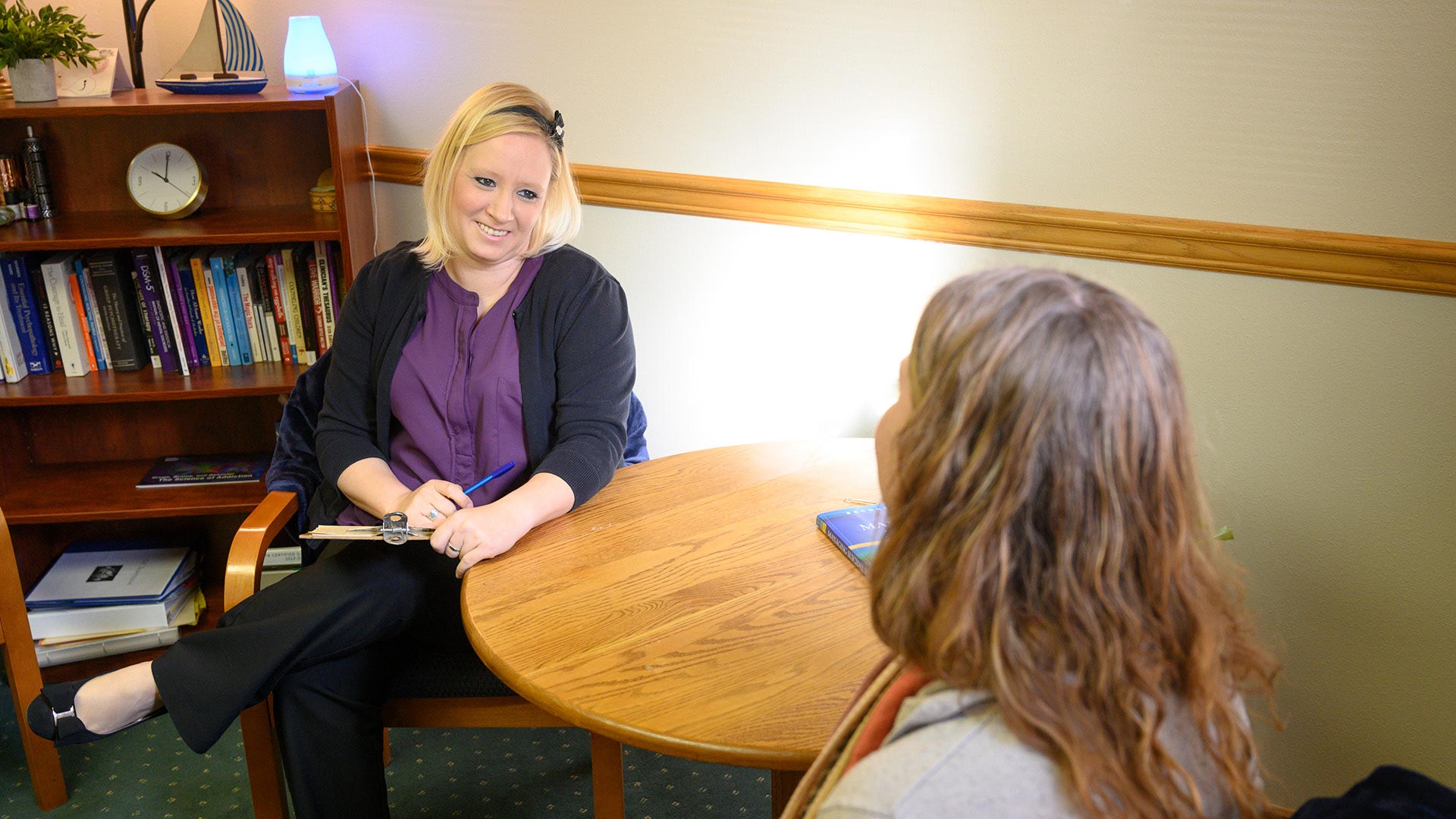
Even before 2020, the United States faced a significant shortage of behavioral health and mental health providers. Then the COVID-19 pandemic hit, turning this shortfall into a worsening crisis; 40% of adults reported symptoms of anxiety or depression during the height of the pandemic, compared with 11% pre-COVID.

Colorado State University offers several degree programs that are pathways into professions like addiction counseling, marriage and family therapy, and social work, and it is uniquely positioned to help close the gap between those in need of mental and behavioral health services and those who can provide them. CSU has received a boost from the Colorado Department of Higher Education to directly support students pursuing careers in these very underserved areas.
Last year, CSU was one of five Colorado universities to share a $5 million award toward tuition assistance for students pursuing degrees like addiction counseling and marriage and family therapy. Funding for the Behavioral Health Incentive Grants came from American Rescue Plan Act resources that were provided to the state of Colorado.
These funds are targeted toward students from rural or low-income backgrounds to help them obtain credentials in certain behavioral health programs of study. The funds also provide specific support for students who experienced economic losses resulting from the COVID-19 pandemic.
CSU received nearly $1.8 million, which is being used to defray tuition bills for eligible students enrolled in the following programs:
- Master of Addiction Counseling in Psychology
- B.S. in Psychology with a Concentration in Addiction Counseling
- B.S. in Human Development and Family Studies with a Concentration in Prevention and Intervention Sciences
- M.S. in Human Development and Family Studies/Marriage and Family Therapy Specialization
- M.A. in Counseling and Career Development, Clinical Mental Health Counseling Specialization
- Master of Social Work
- Bachelor of Social Work
- Joint master’s in Addiction Counseling in Psychology and Social Work
Degree programs in two colleges
Half of the funds will be spent this academic year, and half next academic year. This spring, 38 master’s students and 38 undergraduate students received Behavioral Health Incentive grants.
The degree programs span the College of Health and Human Sciences and the College of Natural Sciences, and leaders in each area have been proactively building these programs in response to ongoing needs in Colorado and beyond.
In 2014, for example, Professor of Psychology Bradley Conner and colleagues launched the undergraduate concentration in addiction counseling within the Department of Psychology. That program gives graduates a direct path into the workforce as entry-level addiction counselors. Also available through the psychology department is a master’s program that produces graduates who are eligible to become licensed addiction counselors, which is the highest professional category for such workers.
In addition, the university offers a joint master’s degree in addiction counseling and social work – a collaboration between the Department of Psychology and the School of Social Work – to provide dual credentialing in two closely related workforce areas.
Help for rural areas of the state
Many such degree programs were created or enhanced in response to the biggest areas of need in the state, which in Colorado include addiction counseling and mental health counseling in rural areas, according to Conner.
“The hope is that (this new funding) will expand the number of students who are interested in getting these degrees, then going into the workforce to provide services,” Conner said.
While such students graduate into fields with plenty of jobs available, “these often aren’t high-paying jobs,” added Lise Youngblade, dean of the College of Health and Human Sciences who led the team responsible for securing the state funds. “So how do we help get people into a really meaningful field? That’s the beauty of these dollars, which are going to support some students for up to two years.”
Youngblade and Jan Nerger, the university’s interim provost and dean of the College of Natural Sciences, have been working together for the last several years to create new incentives and efficiencies aimed at increasing the number of CSU graduates who enter mental and behavioral health fields. Receiving the Colorado Department of Higher Education Behavioral Health Incentive Grant funds was an important step, but the work continues.
“We need to get people out into the workforce; we need to train them quicker, and we need to have them better trained,” Nerger said.
For more information, contact the offices of the degree programs of interest.